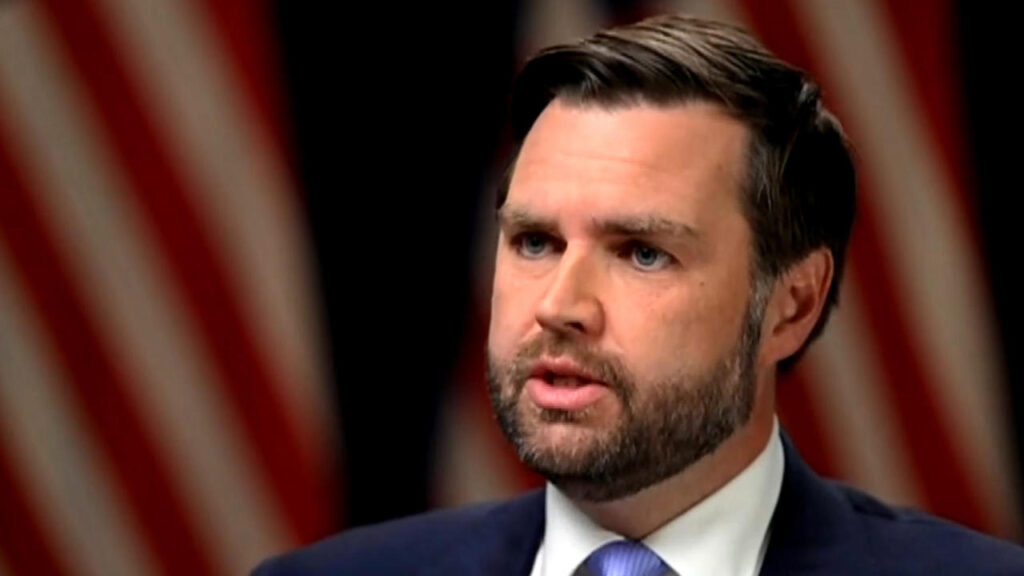Senator JD Vance of Ohio has raised eyebrows with his response to Russia’s latest disinformation efforts in the U.S. elections, suggesting that foreign interference is an inevitable reality. Following a joint statement from the FBI, the Office of the Director of National Intelligence (ODNI), and the Cybersecurity and Infrastructure Security Agency confirming Russian involvement in spreading fake election videos, Vance took a pragmatic stance.
Appearing on CBS’s Face the Nation, Vance, the GOP vice presidential nominee, argued that while foreign interference is problematic, it’s more important for the U.S. to prioritize its strategic interests with Russia. “I think a lot of countries are going to try to manipulate our voters. That’s what they do,” Vance told host Margaret Brennan. He dismissed the idea of heavy retaliation against Russia, emphasizing, “The bigger question is, what is in our best interest vis-à-vis Russia, not what price Russia should pay for putting out social media videos.”
The U.S. intelligence community has assessed that Russia’s current disinformation efforts aim to undermine Vice President Kamala Harris’s campaign, while Iran is reportedly working against the Trump campaign. The ODNI report mentioned that Russian military intelligence tried to recruit a “probably unwitting” U.S. citizen to organize protests, part of broader Russian efforts to influence American politics.
When pressed by Brennan on whether Russia’s interference crossed a “red line,” Vance acknowledged it was “bad” but added skepticism about the impact of requesting Russia to “knock it off.” He pointed out, “This isn’t a schoolyard. I call on Moscow to knock it off—are they actually going to do it?” Vance argued that as a potential vice president, he sees his role as addressing larger issues rather than engaging in “saber-rattling” over social media videos.
Instead, Vance turned the discussion toward what he sees as a more pressing issue: Russian support for Iran in the Middle East, particularly given recent missile exchanges between Israel and Iran. Vance’s comments came just days after Israeli forces conducted strikes on military sites in Iran in retaliation for a recent attack. “What’s important to me is for Russia to stop supporting the Iranians as they engage in aggression in the Middle East,” he said, framing this issue as more pressing than tackling Russia’s election meddling.
As the conversation shifted back to election integrity, Vance expressed confidence in the improvements made since the 2020 election. Speaking from Erie, Pennsylvania, he praised state-level election procedures, noting changes in voter ID and signature verification policies. “I think they’re doing a better job than they were in 2020,” Vance said. “Most importantly, Americans are seeing that our election processes are tightening up in key states.”
Vance also assured that legal challenges would only arise if unlawful activity is suspected, such as non-citizens casting ballots. “If an illegal alien casts a ballot, yes, we’re going to challenge that in court,” he stated, emphasizing the importance of maintaining electoral integrity under federal law.
Vance’s appearance concluded with Brennan questioning his commitment to the U.S. Constitution, a common inquiry given his alignment with former President Donald Trump. Vance replied confidently, “Of course,” adding that he has no doubts about Trump’s adherence to constitutional principles. “Donald Trump believes in the American Constitution. I know he does—I’ve seen it in his actions and talked to him about it,” he said.
While some critics view Vance’s comments as downplaying the seriousness of Russian interference, his stance underscores a broader GOP perspective that emphasizes U.S. interests in international relations over punitive measures. By focusing on what he calls the “bigger question” of U.S.-Russia relations, Vance has reframed the conversation, leaving open questions about the future of America’s response to foreign meddling.
